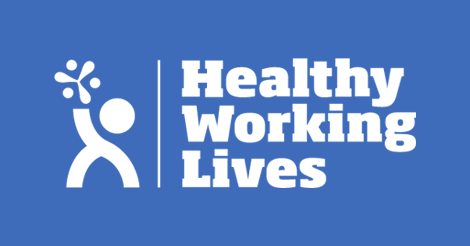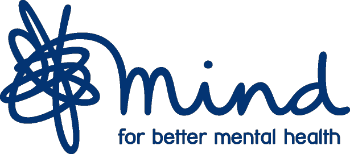Welfare

Working in the equestrian sector means that welfare is a very high priority, whether you are a coach, a rider, an equestrian business or horse owner.
Areas you will need to focus on include:
Would you know what to do in an emergency?
Having a 1st Aid qualification could be the difference between life and death in the case of an accident.
Assessing suitability of medical and support staff to work with children in sport
Many sports organisations work alongside external providers such as private ambulances, first aiders, doctors and physios. It is important that when you're employing external providers the appropriate safeguards are considered, so we've created a briefing to provide guidance on assessing suitability.
First Aid
Mental Health

Supporting A Mentally Healthy Workplace
A new Mental Health & Wellbeing Platform for Employers launched on 11th August to help Scottish employers actively support and promote mental health at work.
The platform is hosted on the Public Health
Scotland website and streamlines employer
access to free and reputable mental health and
wellbeing resources.
It has been developed in partnership with The
Employment and Mental Health Working Group
which brings together the experience and
expertise of cross-sectoral representatives from
employer organisations, Trade Unions, mental
health organisations and public sector partners.
The platform is targeted at employers of all sizes
in Scotland - from large scale companies to
SMEs and the self-employed - but will also be a
useful resource for employees.
Mental Health and Wellbeing e-learning
sportscotland and partners have been supported by SAMH and Scottish Sports Futures in providing tools and techniques to help support players, coaches, parents and officials to achieve a better understanding of mental health and wellbeing, the misconceptions surrounding it, and how to communicate effectively to support a mental health conversation.This e-learning can be accessed here
In addition, Scottish Sports Futures have developed a complimentary Mental Health and Wellbeing ETC Workshop that is available for free until the end of March 2022 due to support and funding from Scottish Government. Initially, this offer will be delivered online and is designed specifically to support coaches in their role. Further information on the learning outcomes and the booking process can be found in the documents below. Further details can be obtained by emailing etc@ssf.org.uk .
Module overview
Individual attendee
registration form
Partner workshop
booking form
Workshop booking
process
SAMH STRATEGY 2021-24
SAMH (Scottish Association of Mental Health) has launched their new strategy to set out how they will reach more people than ever before. The new strategy “We won’t wait” recognises that the last 18 months have been really hard for all of us and sets out that SAMH will be there for everyone, every step of the way. The strategy outlines that SAMH has delivered care and support to thousands, spoken out, stood up, and listened. They have tried, tested and trusted, and now it’s time for more.
Read more
Useful Links

Concussion
horsescotland has been working closely with Dr Andy Malyon who has provided us with this information and support on Concussion in order to help educate the equestrisan sector on concussion and how to deal with concussion.
What is concussion?
Concussion is a brain injury. That might sound quite dramatic, but that is what it is & why it is being talked about in sporting circles. For most people who are concussed, it is a self limiting problem which will resolve with a short period of rest. The most important thing is to identify the fact someone is concussed and look after them properly.
This section of the website outlines what concussion is, how to recognise it, how to manage it and some of the complications that can be associated with it. The intention is that we raise the awareness of concussion amongst everyone involved with horse sports in Scotland. Some of the features described may seem quite dramatic, but as with so many things if we get the basics right & look after someone with concussion properly it should never become a problem in the ways described.
Useful Links
Points to note
-
If in doubt, sit them out. - Be suspicious, & if you think someone is concussed sit them out.
-
Rest the body, rest the brain. - If someone is concussed, a full period of rest for body and brain until all symptoms have gone, then a Graduated Return to Play
Health & Safety
Working with horses can be quite dangerous if you do not follow Health & Safety guidelines.
To help please find information on:
Equine Welfare
British Equestrian and their Equine Infectious Disease Advisory Group (EIDAG) have released a concise handbook for venues who host horse gatherings to aid the fight of disease transmission amongst equines through strong biosecurity provisions.
Based on the principle of ‘reducing risk together’, the latest handbook follows on from the comprehensive guide for reducing spread of disease, released in September 2021 by the EIDAG. Industry leaders and veterinary experts in equine medicine and infectious disease have compiled this handy guide for all venues and event organisers to help safely bring equines together. This includes all types of competitions or meetings, both large and small to ensure sufficient measures are always put in place to help mitigate the risks of disease to keep our equines healthy and equestrian scene active.
British Horse Council Passport Review consultation feedback
Reducing disease risk together: Advice notes for venues which host horse gatherings
The 16-page handbook includes:
· Infectious disease management - why reducing spread of disease is important, support for venues and which diseases venues should focus on.
· Risk reduction strategies - information on vaccinating horses and correct planning procedures for hosting gatherings.
· Practical biosecurity and risk reduction - actions to be taken if a horse becomes ill and advise venues should provide to participants.
· Recommendations for venues with horses which are permanent residents
A launch session was filmed with Celia where she gave some more background on the work of the EIDAG, its members and introduce the new handbook which is available on British Equestrian’s YouTube channel.
The Animal Health & Welfare (Scotland) Act 2006 places a duty of care on pet owners and others responsible for animals (including horses, ponies and donkeys) to ensure that the welfare needs of their animals are met. It also allows the Scottish Parliament to make further regulations to regulate other animal-related activities including, for example, the running of livery yards. You can read the full paper here.
The duty of care is based on the "Five Freedoms":
-
Freedom from hunger and thirst
-
Freedom from discomfort
-
Freedom from pain, injury and disease
-
Freedom to express normal behaviour
-
Freedom from fear and distress
The Scottish Government Code of Practice for the Welfare of Equidae gives advice on how to provide your horse or pony with care that ensures it has the five freedoms. The 75 point document is a practical guide for owners and keepers responsible for equines in Scotland and sets out the underpinning principles of horse care.

You will need to use the Animal Health Regulation EHCs from 15 January 2022 for goods exported from GB to the EU or moved to NI
This is a reminder that from 15 January 2022 you will need to use the Animal Health Regulation (AHR) Export Health Certificates (EHCs) for goods exported from Great Britain (GB) to the EU or moved to Northern Ireland (NI) if an EHC is required. EHCs used by Authorised Traders to move prohibited and restricted (P&R) goods to NI are unaffected by these changes.
If you export certain animals, germinal products and products of animal origin you will need to use the AHR EHCs from 15 January 2022.
UPDATE: Equine Influenza vaccine shortage
Tuesday, 06 September 2022
Further to the update issued jointly with the British Equestrian Veterinary Association (BEVA) and the British Horseracing Authority (BHA) on 17 August, it has been confirmed there are distribution problems with equine influenza doses of Boehringer Ingelheim’s Proteq product. This is a Europe-wide issue, but the impact of a shortage of doses has hit the UK first, with a number of veterinary practices already out of stock. Early indications from the company are that the issues will continue until the end of October at the very earliest.
Working closely with BEVA, British Equestrian’s Emergency Response Group (BEF ERG) can offer temporary guidelines to help minimise the impact of the shortage of vaccine stocks for a limited period whilst preserving the health of our national equine herd. The BEF ERG will continue to meet regularly to monitor the situation and work on a strategy to manage vaccine stocks through the shortage and as supplies return to normal. Click below for further information

Agriculture and Rural Economy learning resources
You can now learn about biosecurity and animal welfare practices thanks to the publication of these courses, which is usually only available to Scottish Government staff.
These courses can be used to educate and inform employers and employees on how to maintain the highest biosecurity standards, and how to respond to animal disease outbreaks.
Biosecurity
Learn how to minimise the spread of plant pests and diseases.
Animal Disease Control
This course provides an introduction to Scottish Government policy on animal disease control.
Disclaimer: Within this course there are some graphic images of animal disease that some viewers may find distressing. Viewer discretion is advised.
Equine Grass Sickness
ScotEquine
Horse owners and keepers all over Scotland are already enjoying the added security which comes from registering on ScotEquine.
Click image to read more
Exciting times ahead for this difficult and devastating disease of equines. A research update and look to the future.
Click image to read more
Equine Passports
Guidance for owners, keepers, veterinarians and local authorities 2020
Click image to read more
Equine Water Treadmills
New guidelines endorsed by British Equestrian (BEF) have been published to highlight best practice in the use of water treadmills to train and rehabilitate horses.
Click image to read more
















